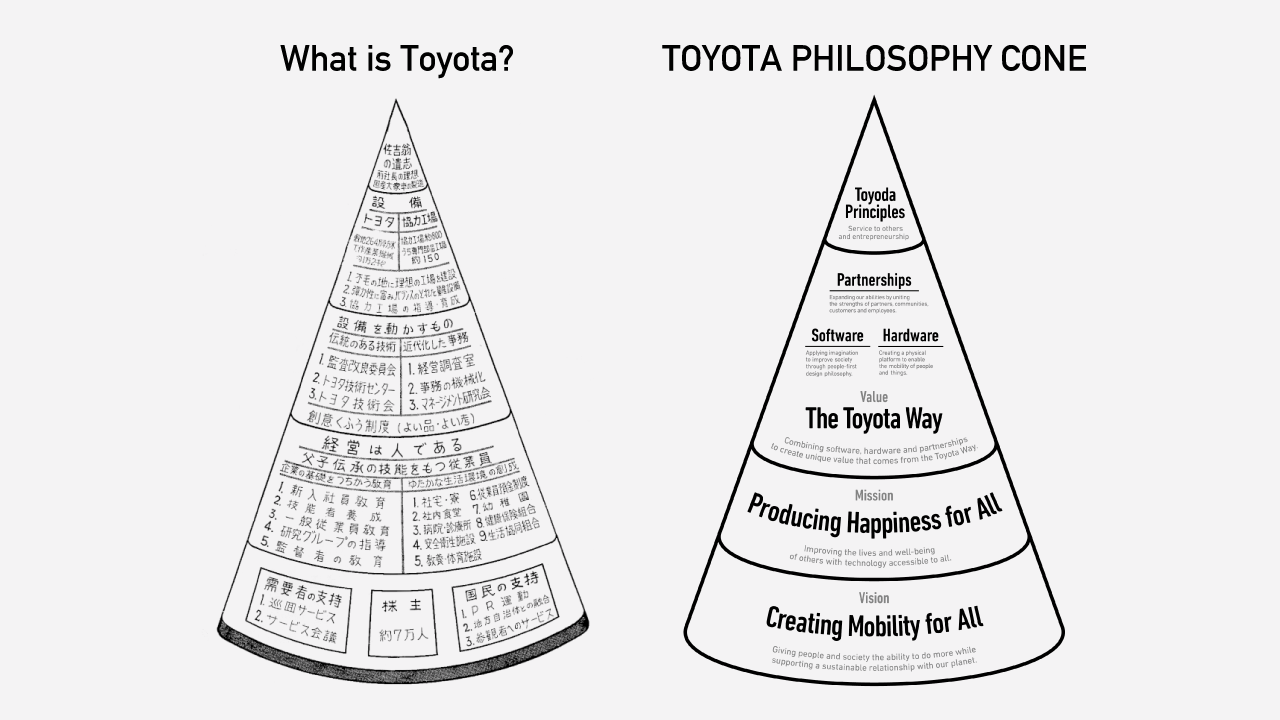
The fifth part of this Ordinary General Shareholders' Meeting series examines the Toyota Philosophy, which was another key topic brought up by shareholders. What spurred Akio Toyoda to establish this management compass?

This series has so far provided four different windows on Toyota’s latest Ordinary General Shareholders’ Meeting (held on June 16 at the company’s headquarters in Toyota City, Aichi Prefecture). In this fifth part, Toyota Times introduces another highlight of the meeting’s Q&A session with shareholders by dialing in on exchanges over the Toyota Philosophy.
Before getting into what was asked and how it was answered, let’s take a look at what the Toyota Philosophy is all about.
The Toyota Philosophy was released last year to illuminate Toyota’s mission and vision for its 370,000 members and their families living in an era of profound transformation, as well as for the next generation who will support Toyota in the future.
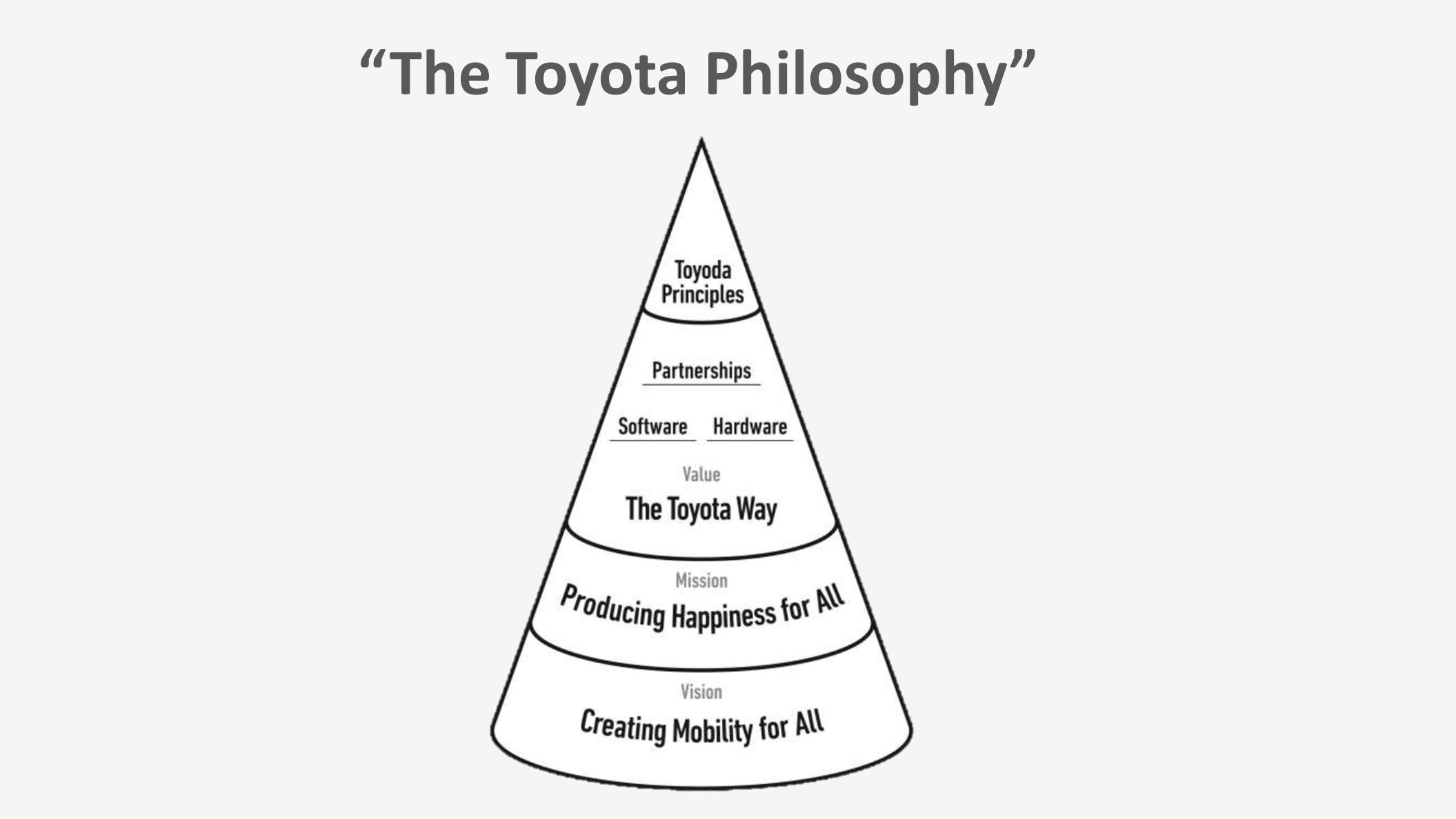
This philosophy was first announced to the public in November last year at Toyota’s financial results briefing for the first half and second quarter of its fiscal year ended March 31, 2021.
Appearing at the second session of the briefing, after sharing his impressions of the results for the first half of the year, Akio declared that Toyota’s corporate activities will be based on the newly compiled Toyota Philosophy going forward.
During that briefing’s Q&A session, Akio was asked why he had created the Toyota Philosophy and defined the company’s mission as “producing happiness for all”. Following is what he had to say.
Akio (in November 2020)
When I speak with various employees, I often use the word “fight”. At the same time, I say that I shouldn’t be discussing that in a confrontational context. Employees have asked: “Who are you fighting against?” Even I have wondered who I am fighting against.
I have come to think that it was “a fight to bring back what makes us Toyota.” When I think about what that might be, I was staying at a training center for the Toyota Group during the COVID-19 crisis [state of emergency], and an employee actually found and showed me that cone [graphic] that I just showed you.
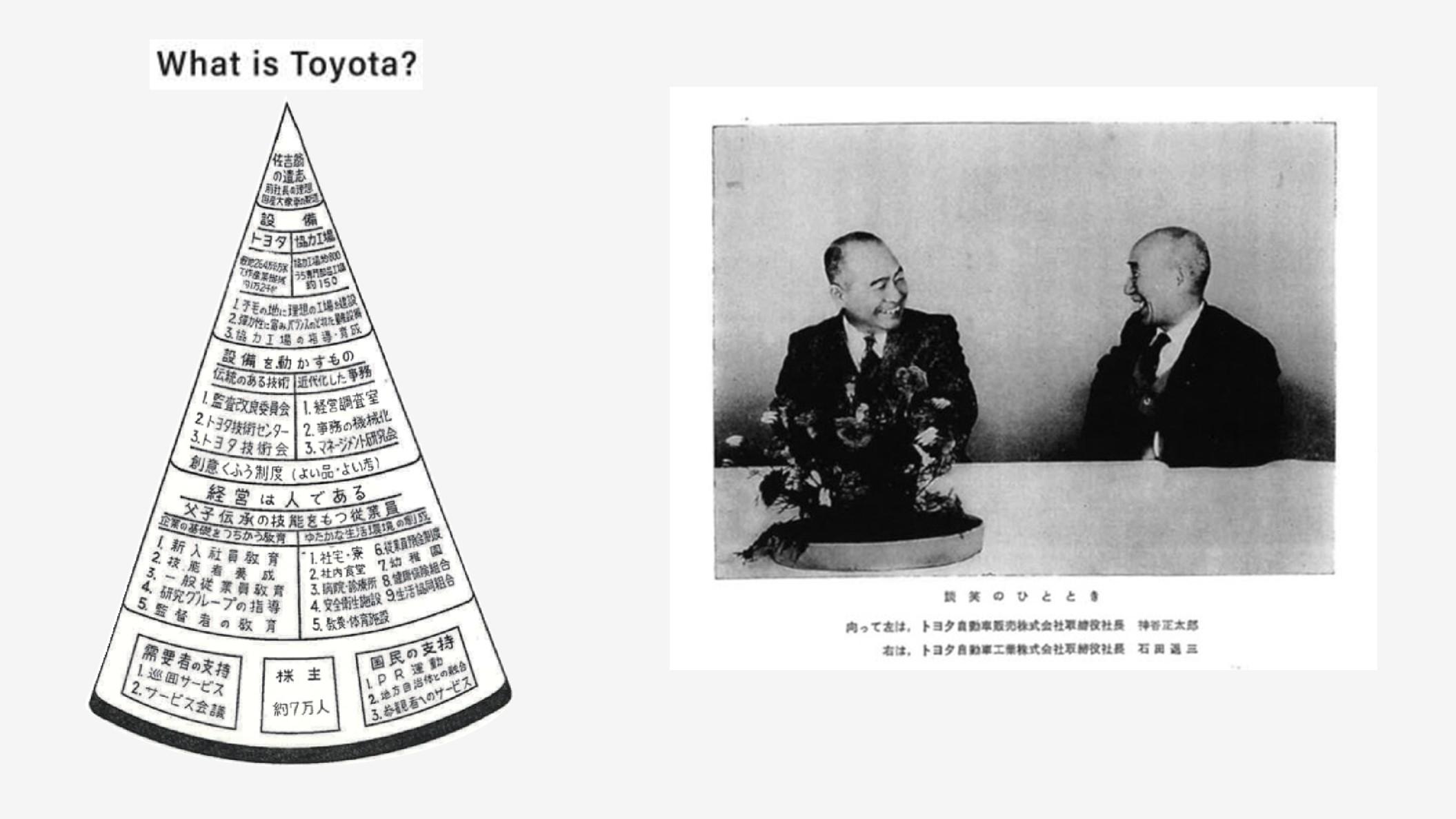
Based upon that cone, we established this Toyota philosophy I just showed you, adding new goals, a new mission, and a new vision.
(…)
By creating this philosophy, we will be able to gather various pieces of advice. What is important is that we use that cone graphic as a base to continue discussing what it is that makes Toyota, Toyota. Additionally, I believe we should use this as a tool to reflect on ourselves as we face changes in the environment.
The philosophy is not the goal. I think of it rather as a starting point. Moving forward, as the situation around us changes, it is my hope that the people at the top will use it as a compass when confronted with problems.
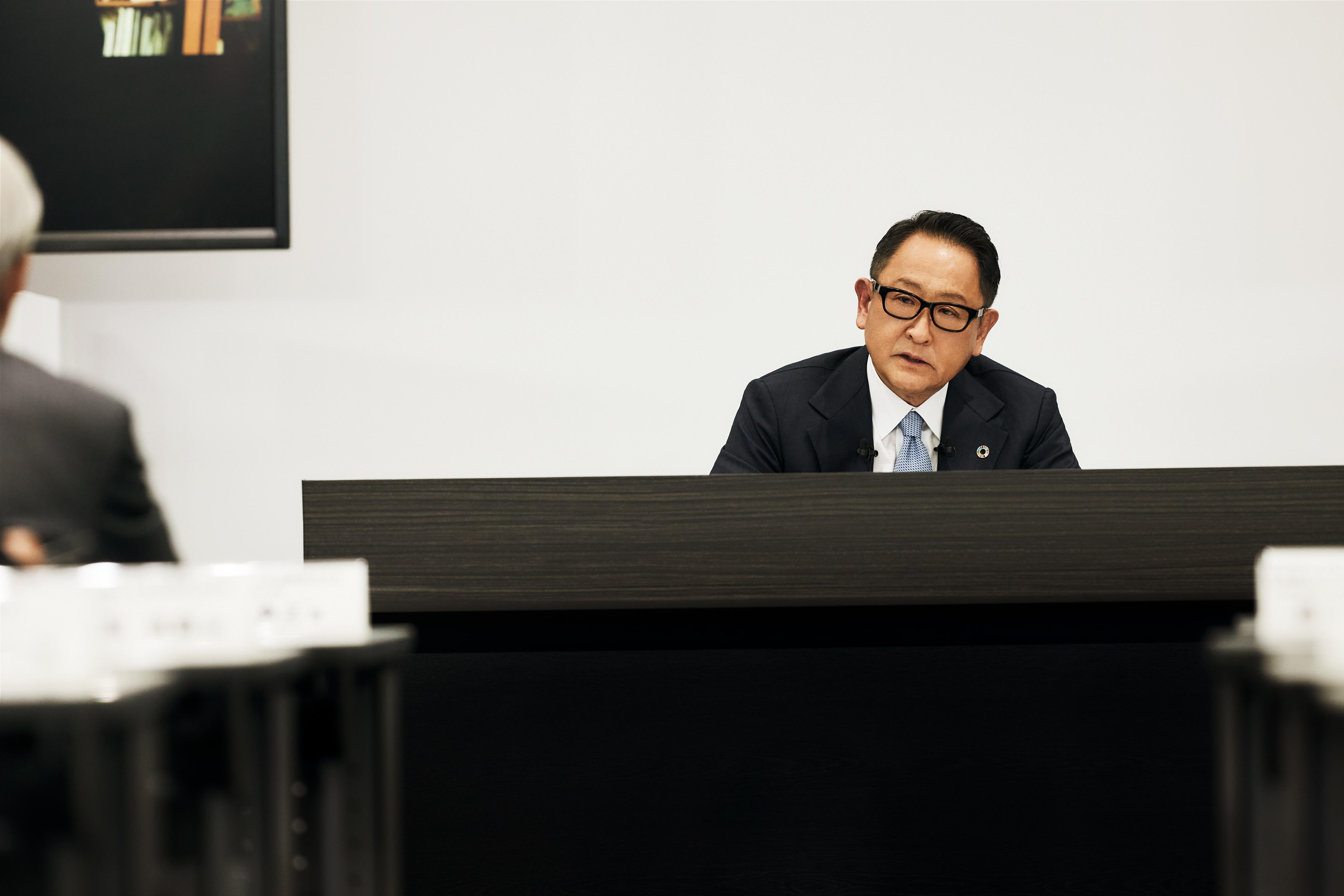
The phrase “producing happiness for all” was actually mentioned by Akio half a year previously at the financial results briefing for the full fiscal year ended March 2020. But following its inclusion in the Toyota Philosophy, it has come to be mentioned by Toyota executives and employees alike both inside and outside the company.
The Toyota Philosophy’s having been referred to as a compass, of sorts, for management is probably why it was a topic of great interest to shareholders, as evidenced by the fact that a question about it was brought up more than once.
The first questioner, while bringing up the Toyoda Principles, which were compiled in 1935 to encapsulate the teachings of Sakichi Toyoda, and the Toyota Global Vision, which was created in 2011 under Akio’s direction in his second year as president, sought an easy-to-understand explanation of the Toyota Philosophy.
Akio directed Chief Human Resources Officer Masanori Kuwata to respond.
Kuwata
The Toyota Global Vision and the Toyota Philosophy are based on the Toyoda Principles (Five Main Principles of Founder Sakichi Toyoda). The Toyoda Principles, which encapsulate the teachings of Sakichi Toyoda, represent the origin of Toyota, and we are trying to properly pass them on to the next generations.
Toyota is attempting to transform itself into a mobility company, and we are working on initiatives with various partners beyond the way we have done things before.
In this process, as there are many things that make us unsure, we thought we’d need a new philosophy on which to base decisions and for thinking about what is important.
Just having come up with something doesn't mean that it will penetrate people’s minds, so workplace seniors talk with their subordinates about their experiences and share their thoughts. I would like to continue our efforts that encourage all team members to move forward with the same mindset.
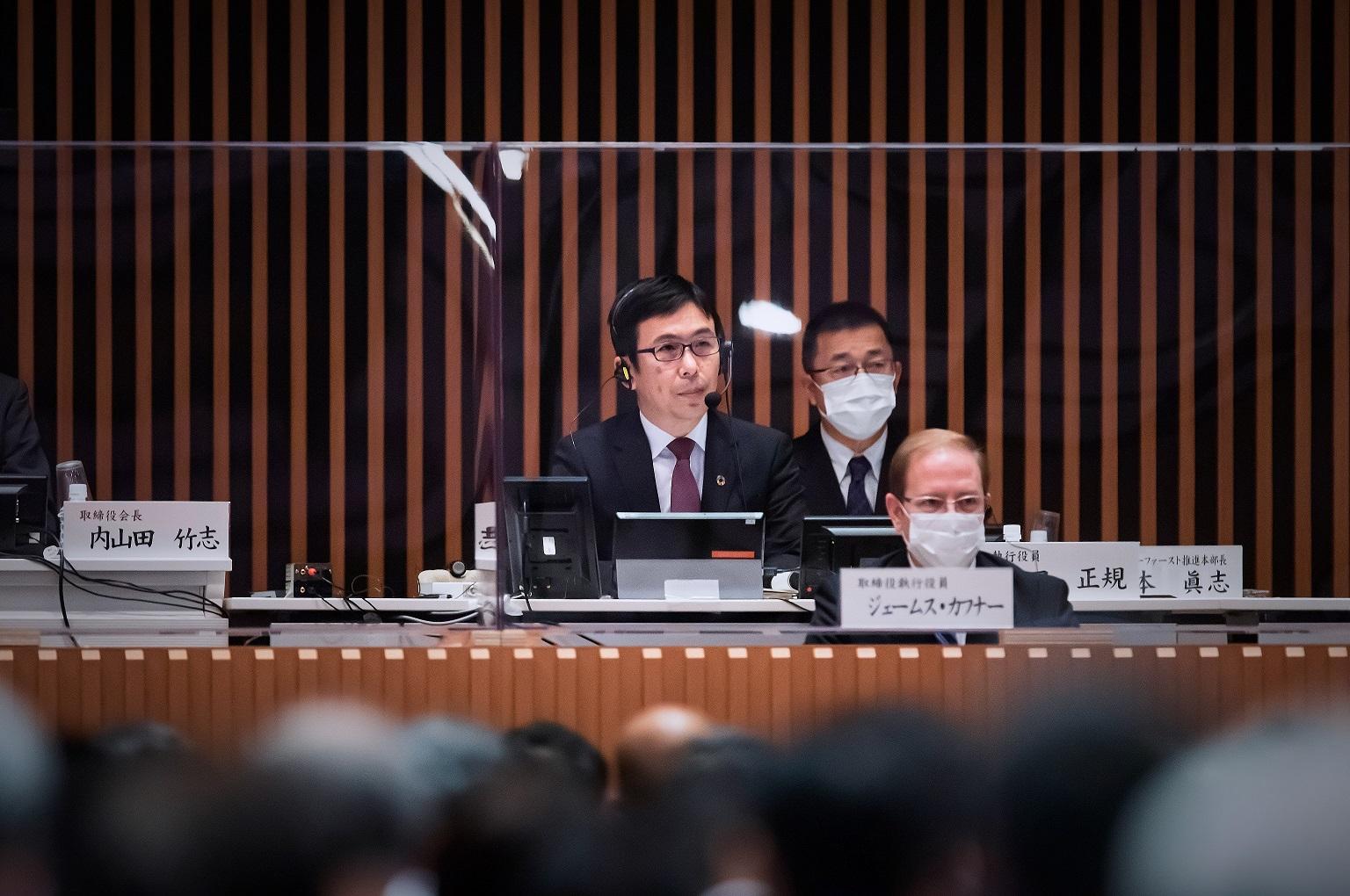
Another question about the Toyota Philosophy came at the end of the 1.5-hour Q&A session.
The questioner touched on the Toyota Philosophy’s vision of “creating mobility for all” and asked how Toyota envisioned future society. Akio’s direct response concluded the Q&A session.
Akio
With the CASE revolution, I believe that cars of the future will be connected to communities and people’s lives through information and become part of the social system.
Amid such, we are striving to undergo a complete redesign (so to speak) to transform into a mobility company and are taking on the challenge of creating an “ever-better mobility society” in which people can live happily with smiles on their faces.
As an automobile company, we have long been manufacturing industrial products. I believe that the needed characteristic of our talented workforce for that has been uniformity. That’s because it is important to produce different products with the same quality regardless of who is working on them.
However, from now on, the needs of customers and society will become more diverse, and mobility will be required to have attractive performance in terms of both hardware and software.
Under such circumstances, I feel that it is becoming more important to have human resources with diverse values and abilities. I also believe that such a diverse and talented workforce will be the driving force behind innovation.
I believe that Woven Planet, which is the software company of the Toyota Group, is at the forefront of this.
In Woven City, we will demonstrate a mobility society on the level of a town that goes beyond hardware and software and connects the hearts of people, and, together with diverse partners, we will aim to make people in the city happy.
The Toyota Philosophy, which we compiled last year, also defined our mission as “producing happiness for all”.
I believe that happiness can take various forms depending on the person. “Producing happiness for all” does not mean producing the same thing for everyone. Thinking through diversification and engaging in high-mix, low-volume production is the kind of “production of happiness for all” for which we aim.
Looking at the 17 Social Development Goals (SDGs) as a set of squares laid out in three rows of six, you will see that the space for the last square is empty. It might be a decidedly arbitrary way of looking at it, but I believe that people’s happiness is the 18th goal.
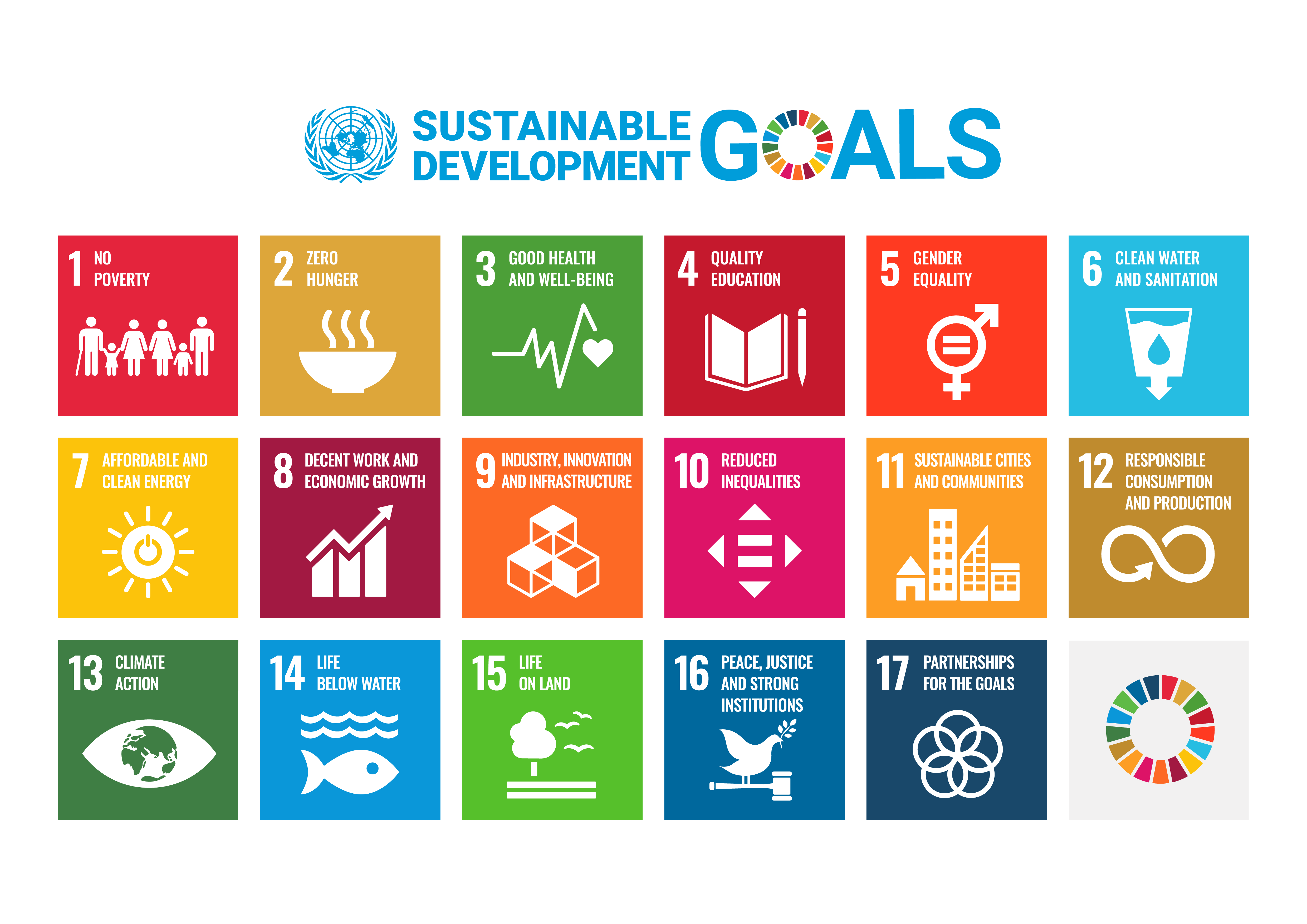
I interpret this to mean that only people who seriously strive to realize the (established 17) goals will be able to see a world of the 18th goal.
Together with our many stakeholders and based on our mission of “producing happiness for all”, I hope that, as we move step by step toward the future, we will someday arrive at a world of the 18th SDG.
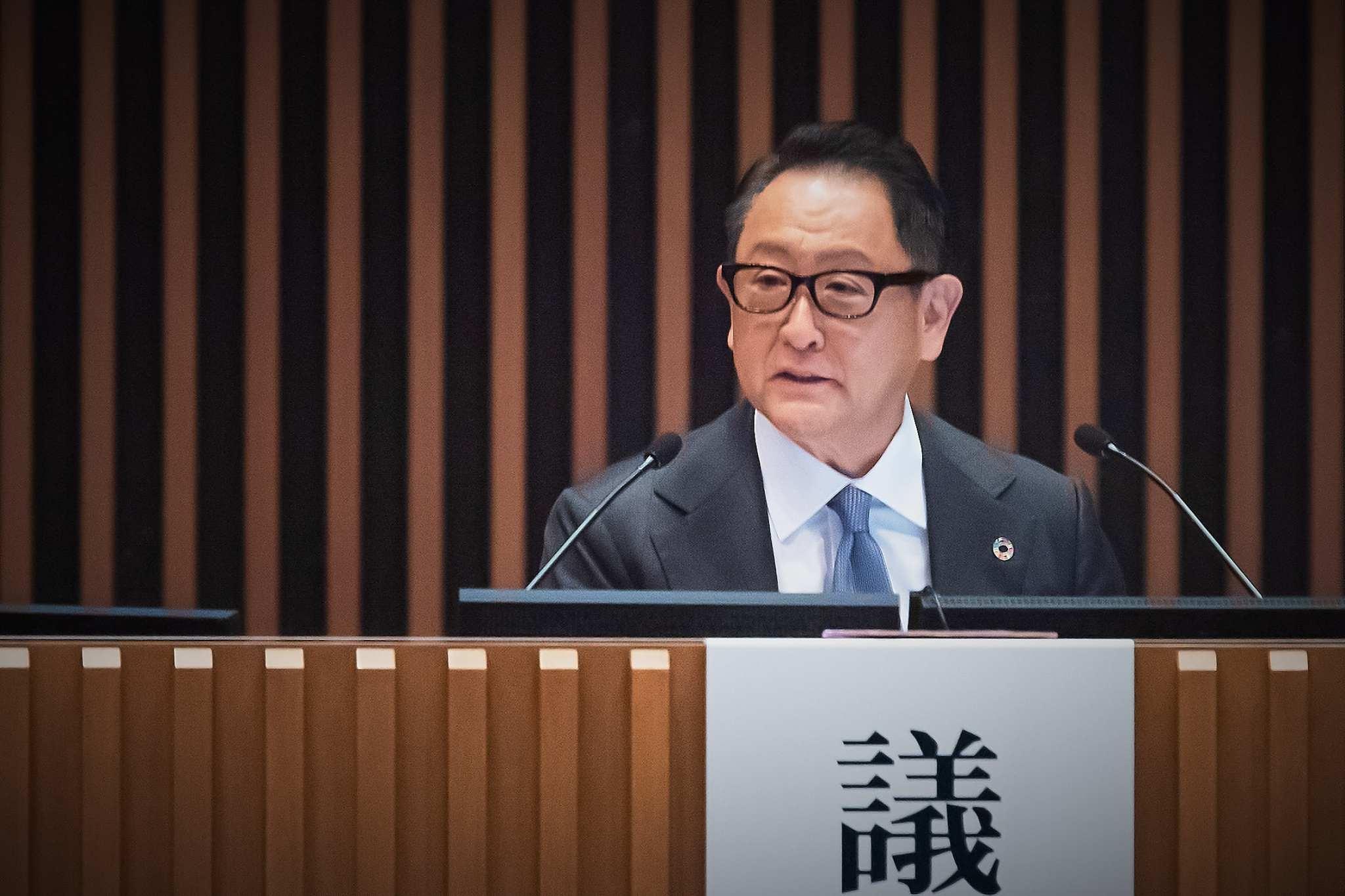
There is something that Akio has said many times in the past.
“I think that ‘to bring back what makes us Toyota’ is equal to spending time on the past. I want my generation to be the last to spend time on the past. I want the next generation to be able to spend time on the future.”
Akio, more than anyone else, has experienced the hardships of the fight to bring back what makes Toyota, Toyota. His strong desire not to let anyone else go through the same thing might be why we now have the Toyota Philosophy.

